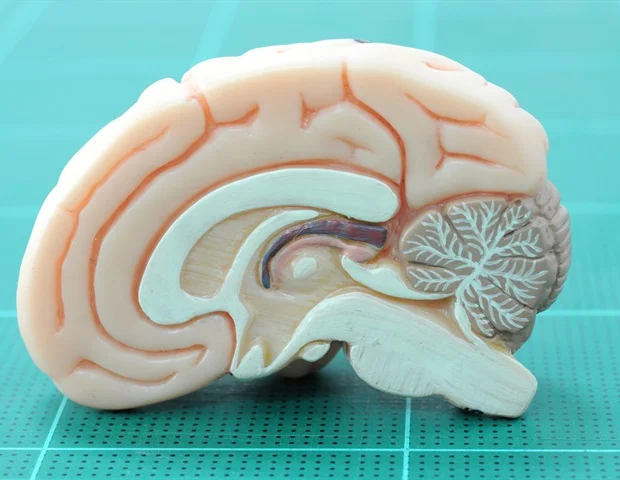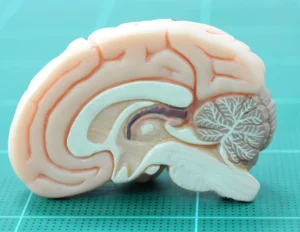Professor Inga Neumann Advances Understanding of Oxytocin and Social Fear
In the realm of neuroscience and psychology, oxytocin has long been hailed as the “love hormone” due to its well-documented role in bonding, social interactions, and emotional regulation. Recent breakthroughs by Professor Inga Neumann, a renowned researcher in the field of behavioral neuroscience, have taken our understanding of this hormone to a new level, specifically in relation to social fear and anxiety. Her pioneering work has shed light on the intricate relationship between oxytocin and how individuals experience and manage social fear, thus opening up new avenues for potential therapies for conditions such as social anxiety disorder, post-traumatic stress disorder (PTSD), and autism spectrum disorder (ASD).
This long description will explore Professor Neumann’s contributions to the field, the mechanisms by which oxytocin influences social fear, and the implications of her research for both scientific understanding and clinical practice.
Introduction to Oxytocin: The Social Hormone
Oxytocin, a neuropeptide produced in the hypothalamus and secreted by the pituitary gland, is well-known for its role in childbirth, lactation, and maternal behaviors. However, it is also crucial for various aspects of social behavior. Studies have demonstrated that oxytocin plays a key role in facilitating social bonding, trust, empathy, and emotional regulation. It is thought to modulate social behaviors by enhancing the processing of social cues, fostering positive emotions, and promoting prosocial behaviors.
While the role of oxytocin in promoting social connections is widely recognized, its influence on social fear and anxiety is more complex and nuanced. In many individuals, social fear can result in intense anxiety and avoidance of social situations, leading to impairments in personal and professional life. Understanding how oxytocin interacts with social fear could be a game-changer in developing effective treatments for anxiety-related disorders, especially those involving social interactions.
Professor Inga Neumann’s Groundbreaking Research
Professor Inga Neumann, a distinguished behavioral neuroscientist, has been instrumental in advancing our understanding of the role of oxytocin in social fear. Her research primarily focuses on the neurobiology of social behaviors and how the brain processes social and emotional cues. Through her work, Neumann has made several significant discoveries that challenge traditional views of oxytocin as merely a “bonding hormone.”
Neumann’s studies have shown that oxytocin’s effects on social fear are not straightforward; it can have both anxiety-reducing and anxiety-promoting effects, depending on the context and the individual’s neurobiological makeup. This dual effect of oxytocin in regulating social fear is particularly important for understanding how it may be used therapeutically. Neumann’s work emphasizes that while oxytocin has the potential to alleviate social anxiety, it may also exacerbate it under certain conditions, depending on the levels of the hormone and the individual’s psychological and physiological state.
The Mechanisms of Oxytocin and Social Fear
To understand how oxytocin affects social fear, it is essential to examine the underlying mechanisms that drive these effects. Oxytocin’s influence on social fear operates through several brain regions and neural circuits that are involved in emotional processing, memory, and fear regulation. These include areas such as the amygdala, the prefrontal cortex, and the hippocampus.
- Amygdala and Oxytocin: The amygdala is known to be a central player in the processing of emotions, particularly fear. Research by Professor Neumann has demonstrated that oxytocin can modulate amygdala activity, reducing fear responses in social situations. When oxytocin binds to receptors in the amygdala, it can dampen the brain’s response to perceived threats, thus helping individuals regulate their emotional reactions to social stimuli. This has significant implications for people who suffer from social anxiety, as heightened amygdala activity is often seen in individuals with this condition.
- Prefrontal Cortex and Oxytocin: The prefrontal cortex (PFC) is involved in higher-order cognitive functions, including decision-making, social cognition, and emotional regulation. Neumann’s research suggests that oxytocin can enhance the functioning of the PFC, promoting more effective regulation of social fear. In situations where individuals would normally experience anxiety, oxytocin may enable them to process social cues more accurately and respond with greater social confidence. This may be particularly useful in situations where social interactions are ambiguous, helping individuals to feel less threatened by the presence of others.
- Hippocampus and Memory: The hippocampus is responsible for memory formation and processing. Neumann’s work has highlighted the role of oxytocin in influencing the hippocampus, particularly in relation to the memory of past social experiences. Oxytocin’s action on the hippocampus may play a crucial role in modifying the emotional memories associated with social interactions, potentially making future social encounters less intimidating. This is particularly important for individuals with trauma-related social fear, where previous negative experiences may shape their perception of future interactions.
- Oxytocin and Social Fear Responses: Social fear often arises from the anticipation of negative evaluation or rejection in social situations. Neumann’s research has shown that oxytocin can alter the way individuals interpret social signals, particularly in terms of facial expressions and body language. In individuals with low levels of oxytocin, there may be a heightened sensitivity to negative social cues, contributing to feelings of anxiety. Conversely, higher oxytocin levels appear to reduce this sensitivity, allowing individuals to interpret social situations in a more positive light.
The Dual Nature of Oxytocin’s Effect on Social Fear
One of the most striking aspects of Professor Neumann’s research is the recognition that oxytocin does not always have a purely positive effect on social fear. While it can reduce anxiety and improve social bonding in many cases, it can also exacerbate fear in certain individuals, particularly those with pre-existing emotional vulnerabilities. This dual effect is thought to be due to individual differences in oxytocin receptor distribution and sensitivity, as well as the context in which oxytocin is released.
- Context-Dependent Effects: Oxytocin’s effects on social fear are highly context-dependent. For example, in a supportive and safe environment, oxytocin may promote feelings of trust, empathy, and reduced anxiety. However, in stressful or threatening situations, the same hormone could amplify feelings of fear and anxiety. Neumann’s research suggests that oxytocin’s role in social fear is mediated by the individual’s perception of their social environment and the cues they receive from others.
- Vulnerability Factors: Certain individuals, such as those with a history of trauma, PTSD, or autism spectrum disorder (ASD), may have altered oxytocin systems. In these individuals, oxytocin may not function as it does in the general population. For example, while oxytocin may help reduce anxiety for most people, it could increase social anxiety in individuals with certain emotional or neurological conditions. This is an important consideration when using oxytocin as a therapeutic tool, as personalized approaches may be necessary to achieve the desired effect.
Therapeutic Implications of Neumann’s Research
Professor Neumann’s groundbreaking research on oxytocin and social fear holds significant promise for the development of new treatments for a variety of conditions associated with social anxiety. Her work emphasizes the need for a nuanced approach to oxytocin therapy, as the hormone’s effects can vary based on the individual’s biological and psychological profile. Below are some key therapeutic implications of Neumann’s findings:
- Targeted Oxytocin Therapy: Neumann’s research suggests that oxytocin-based therapies could be effective in treating social anxiety, PTSD, and other conditions related to social fear. However, the success of such treatments will depend on understanding the individual’s unique oxytocin receptor sensitivity and emotional profile. Personalized dosing strategies and tailored interventions will be essential to maximize the benefits of oxytocin treatment.
- Trauma and PTSD: In individuals with PTSD, oxytocin may help modulate fear responses and reduce the emotional intensity associated with traumatic memories. However, for those with extreme sensitivity to social cues, oxytocin might exacerbate feelings of distress. Neumann’s work provides a framework for further exploring how oxytocin could be used to alleviate the social fear component of PTSD while minimizing potential risks.
- Autism Spectrum Disorder (ASD): Oxytocin has been studied as a potential treatment for social difficulties associated with ASD. Neumann’s research highlights the complexity of this approach, as individuals with ASD may have unique oxytocin processing systems. By understanding how oxytocin affects social fear in these individuals, more effective and tailored interventions could be developed.
- Social Anxiety Disorder: Neumann’s findings suggest that oxytocin may help individuals with social anxiety disorder by reducing the fear of negative evaluation and improving social confidence. However, the exact mechanisms and potential side effects of oxytocin therapy in this context need further investigation to ensure its safety and effectiveness.
Professor Inga Neumann’s contributions to our understanding of oxytocin and social fear have provided valuable insights into the complex relationship between hormones, social behavior, and emotional regulation. By recognizing the dual effects of oxytocin, her research challenges the simplistic view of the hormone as a purely positive agent and underscores the need for personalized approaches to treatment. As we continue to explore the therapeutic potential of oxytocin, Neumann’s work will undoubtedly serve as a foundation for future research aimed at improving the lives of individuals struggling with social anxiety, PTSD, ASD, and related conditions. Through a deeper understanding of how oxytocin influences social fear, we can move closer to developing more effective, targeted interventions for mental health disorders.














